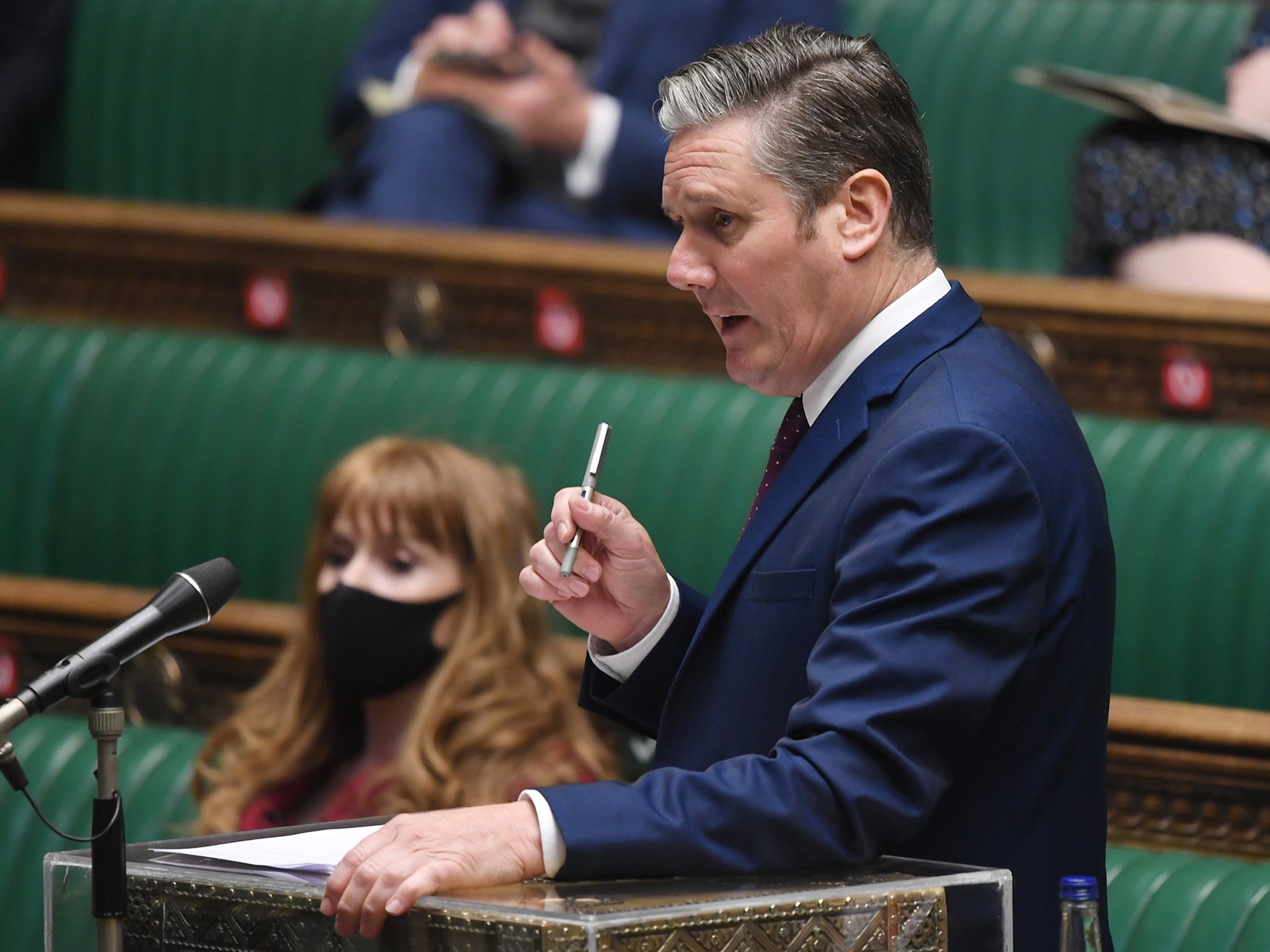Keir Starmer is not finished yet – he asked the right questions at PMQs
The Labour leader had his back to the wall but came out fighting in the Commons, writes John Rentoul


Keir Starmer showed some character in Prime Minister’s Questions (PMQs). He came to the chamber with his leadership being written off, in the depths of an opinion-poll trough, but he held his nerve and asked the questions the people want answered. Boris Johnson waffled and blustered in reply, and tried to claim he was focused on “the people’s priorities” – a New Labour phrase that he has adopted – but it was Starmer who better represented the people’s priorities today.
People are worried about variants of coronavirus, particularly the Indian variant, and they think the measures to stop them coming into the UK are inadequate, which was the subject of Starmer’s first question. Against this anxiety, all the prime minister could offer was that “we” have “looked at the data again this morning, and we have increasing confidence that vaccines are effective against all variants, including the Indian variant”.
Such vague statements do little to reassure people. Starmer knows that, and he knows that on public health and borders, public opinion is censorious, punitive and isolationist. So much so that good Labour internationalists might start to feel uncomfortable when their leader says: “We are an island nation; we have the power to stop this.” But Starmer is fighting for his survival and this is politics.
So Labour is demanding that all our borders be closed, and Starmer devoted most of his questions to the confusion over travel to and from amber-list countries. Starmer and Johnson both know that the Labour leader has the backing of public opinion, and of some powerful centres of Boris Johnson’s former cheerleaders. Starmer didn’t need to quote the Daily Mail’s front-page headline this morning – “Wish You Were Clear, Ministers!” – but he could not pass up the chance to point out that Dominic Cummings, the prime minister’s recent chief adviser, yesterday described the government’s border policy as a “joke”.
It was left to Johnson to try, half-heartedly, to defend the line that in all other circumstances Labour Remainers would have wanted to hear: that it is not practical to shut Britain’s borders completely, because we need medicines and food. But he was all over the place, simultaneously insisting that we have one of the toughest border control regimes in the world, and saying the position was “very, very clear – you should not be going to an amber-list country on holiday”. You should go only in exceptional circumstances, he explained, such as for the illness of a family member.
To which Starmer repeatedly asked why the government had just made it easier for people to travel to and from amber-list countries. “It’s ridiculous,” he concluded, which is what is known in opinion research as a “nod-along” moment – it is the sort of statement with which focus groups of floating voters will agree.
Having won the argument, Starmer then shut down Johnson’s semi-prepared party political broadcast in reply to the sixth and final question. Starmer changed the subject and devoted his last question to the serious issue of antisemitism, raising the attack on a rabbi and the loudspeaker convoy of hate in north London in the past few days. Johnson was forced to adopt a sombre and bipartisan tone in reply, but he couldn’t keep it up, first praising Starmer for embodying a welcome change in attitude on the subject of antisemitism from his predecessor, but then describing it as a “U-turn”. It sounded a little cheap to be trying to score political points on such a subject.
Overall, then, Starmer had the upper hand. He concealed it with his downbeat, earnest manner, just as Johnson concealed the shakiness of his ground with his confident bluster. I am not saying that Labour is in a strong position, but there is little more that it can do while the vaccines are going well, which guarantees that the government and the prime minister remain relatively popular.
The only plausible ground on which Starmer can attack Johnson is competence, and it was working towards the end of last year, before the vaccines kicked in. The confusion over borders cannot wipe away the success of the vaccines, but it gives Labour the chance to press the government while going with the grain of public opinion. There will come a time again when incompetence will be an effective charge against the Johnson administration.
Join our commenting forum
Join thought-provoking conversations, follow other Independent readers and see their replies
Comments